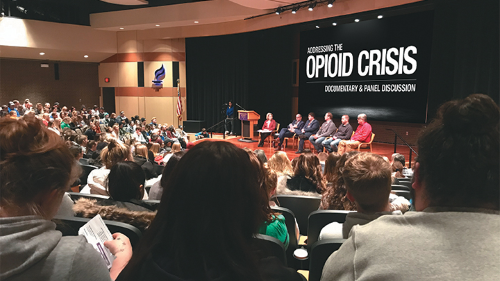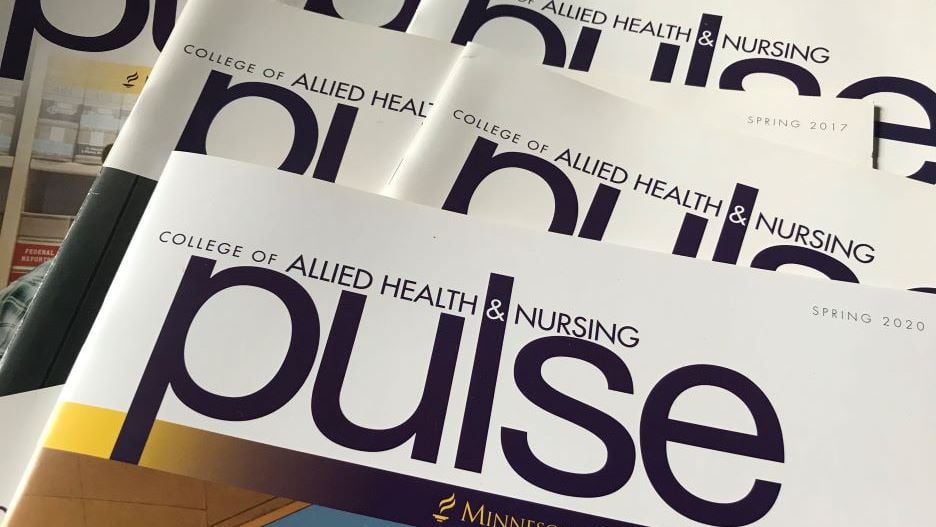Opioid event highlights faculty research and connection to community

As part of an ongoing effort to explore education, prevention and solutions surrounding the opioid crisis, the College of Allied Health and Nursing hosted an event in early 2020 to focus on the local impact of the national epidemic.
The event, called “Addressing the Opioid Crisis,” was co-sponsored by Twin Cities Public Television and Mayo Clinic Health System and featured a documentary viewing, a panel discussion and a standing-room-only crowd.
“This epidemic continues, and we don’t take it lightly as we work with students and the community,” said Thad Shunkwiler, an assistant professor in the Alcohol and Drug Studies program.
Across the College, faculty are actively engaged in research and outreach about opioid—here’s a sampling:
- Jennifer Londgren, an assistant professor in the Alcohol and Drug Studies program, has been researching the impact of opioids specifically in rural communities and the elderly. “What we’re really finding is that rural elderly citizens are specifically being heavily impacted by opioids, and about half of people who overdose in rural communities are aged 65 and older.”
- Amy Haycraft, an assistant professor in the School of Nursing, has researched opioid use during pregnancy, including reporting standards and implications for improving practice. “To improve outcomes, a non-criminalized, non-punitive, supportive multidisciplinary approach consisting of early substance use screening/identification, comprehensive referrals, and long-term support service is necessary.”
- Shunkwiler, who is also a licensed mental professional, focuses his research on adolescent substance use and the intersection of substance use and mental health. He also notes there is a racial discrepancy around opioid use, calling the epidemic both a “health care and a social justice issue.”



